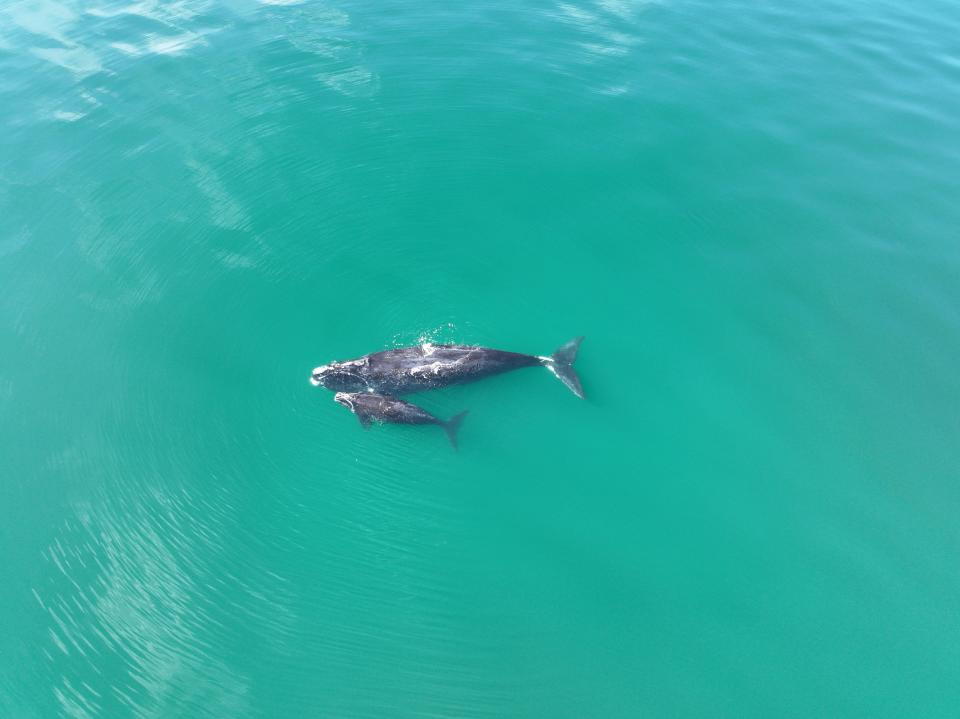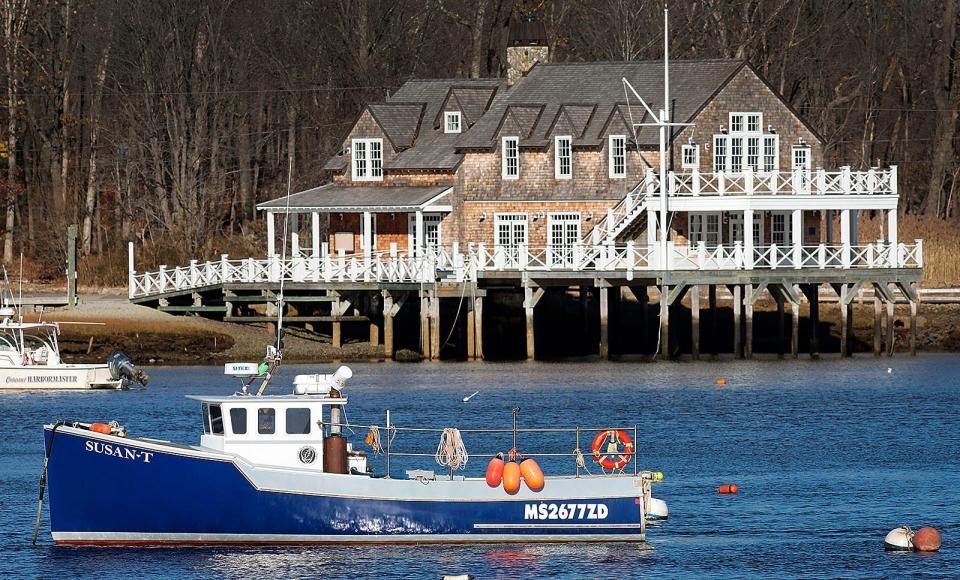Death sentence? Why spending law threatens North Atlantic right whales with extinction
This commentary by Nancy Daves, a retired National Oceanic and Atmospheric Administration (NOAA) marine conversation professional. She lives in Atlanta.
The proceedings surrounding President Joe Biden’s recent State of the Union address were full of partisan rancor, something Americans have become accustomed to over the last few decades. Congressional approval ratings are at historic lows and Americans have come to expect very little from our polarized political system. But in December, our elected representatives managed to come together to pass the 2023 Omnibus Spending Bill and avert a government shutdown. It’s what passes as a victory in Washington, D.C. these days. But not everyone is celebrating. As part of securing the bill’s passage, a compromise was struck that could condemn an entire species to extinction. Only 340 North Atlantic right whales still swim in our oceans. They were nearly extinct a century ago but avoided that fate thanks in part to the Endangered Species Act (ESA) and the Marine Mammal Protection Act (MMPA) - laws that require the National Oceanic and Atmospheric Administration’s (NOAA) fisheries division to impose stricter regulations on industry to prevent species’ populations from declining beyond the point of no return. Through the ESA and the MMPA, NOAA fisheries has prevented the extinction of all marine mammals that fall under their protection. That may change soon.
Doing right by whales: Groups urge NOAA to enforce boat speed rules off Georgia Coast

As a former, 20-year NOAA employee, I am keenly aware of how difficult the regulatory process can be. An agency review in 2022 of previous efforts determined that North Atlantic right whale deaths need to be drastically reduced to ensure the species' survival. Right whales, which calve off the coast of Florida and Georgia and then migrate up the Atlantic Coast, are extremely vulnerable to entanglement in the vertical buoy lines used in lobster and crab trapping gear.
Nearly two-thirds of known right whale deaths and serious injuries in the past six years are due to fishing gear entanglements. Almost all living right whales have been entangled and more than half have been entangled multiple times. Entanglement can lead to drowning, reduced mobility, and, in some cases, a long, painful death from starvation. To reduce entanglements, NOAA, in accordance with its mission and compelled by the ESA and MMPA, recommended temporarily closing certain areas off the coast of New England to lobster trapping when the whales are present. Unfortunately, this recommendation has put the survival of the right whales at odds with the Maine Lobster industry, the second-largest fishery in the U.S. It contributes more than $1.5 billion to Maine’s economy, and, predictably, this gives the fishery considerable influence with federal lawmakers.
So, in an act rarer than the critically endangered whale itself, Republicans, Democrats, and Independents in Maine’s congressional delegation, with the help of Senate Majority Leader Chuck Schumer (D-NY), inserted a provision, dubbed by some “the extinction rider” into the Omnibus Bill. It is an end run around the ESA and the MMPA and will delay implementation of NOAA’s proposed conservation measures for six years.

From my time at NOAA, I know the majority of employees entered the field to have a positive impact on the health of our environment and are committed to the protection, conservation and recovery of endangered and threatened marine species while taking into account the social and economic impacts to coastal communities. Balancing the interests of stakeholders is always a challenging situation, but under the ESA and the MMPA, NOAA has the responsibility to protect endangered species and their critical habitats. Having their hands tied by Congress is an excruciating situation for many of its career employees. If no action is taken to reverse course, the six-year delay in action being taken means the North Atlantic right whale will be on an irreversible path to extinction. Within 20 to 40 years the last of the remaining whales will die. Odds are the cause of death will be a vessel strike or entanglement in one of the thousands of ropes used in the lobster fishery. The North Atlantic right whale will be the first large whale to go extinct from human causes.

It's not too late. Let's hope policymakers find the courage to change course, abide by our benchmark conservation laws, and change the fate of the North Atlantic right whale. In the wake of the extinction rider, NOAA leadership — Administrator Rick Spinrad and Janet Coit, assistant administrator for fisheries — must do whatever they can, including fully funding solutions, to mitigate its harm. We all know Congress must negotiate other deals later this year to avoid default and government shutdowns. What sacrifices to our environment will be made to broker that deal?
This article originally appeared on Savannah Morning News: Federal spending bill provision speed extinction North Atlantic whales

